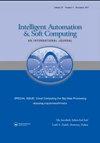基于OENN临床决策支持系统的大数据分析
IF 2
4区 计算机科学
Q2 Computer Science
引用次数: 0
摘要
近年来,使用机器学习(ML)的大数据分析在大量复杂医疗数据的同化和验证方面具有几个优点。与传统的统计工具相比,ML模型具有可扩展性和灵活性,这使得它们适用于风险分层、诊断、分类和生存预测。尽管有这些好处,但ML在医疗保健领域的应用面临着挑战,需要大量的训练数据、数据预处理、模型训练和基于临床问题的参数优化。为了解决这些问题,本文提出了基于最优Elman神经网络(BDA-OENN)的临床决策支持系统大数据分析方法。BDA-OENN模型的重点是为自闭症谱系障碍(ASD)设计一种诊断工具,ASD是一种与沟通、社交技能和重复行为相关的神经系统疾病。提出的BDA-OENN模型涉及数据预处理、合成数据生成、分类和参数优化等不同的操作阶段。对于合成数据的生成,使用了合成少数过采样技术(SMOTE)。使用Hadoop生态系统工具管理大数据。此外,将OENN模型用于分类过程,其中ENN模型的最优参数设置采用二元灰狼优化(Binary Grey Wolf Optimization, BGWO)算法。通过一组详细的仿真来突出BDA-OENN模型的改进性能。所得的实验值报告了BDA-OENN模型在不同性能度量方面优于其他方法。Ligent医疗保健系统有助于做出更好的决策,从而进一步使患者能够提供更好的医疗服务。同时,皮肤病变是一种影响所有年龄组的人的致命疾病。早期,皮肤病变的分割和分类对智能系统对皮肤癌的精确诊断起着至关重要的作用。但是,自动诊断皮肤镜图像中的皮肤病变是一个具有挑战性的过程,因为存在诸如人工制品(头发,凝胶气泡,尺子标记)等问题。本作品采用知识共享署名4.0国际许可,允许在任何媒介上不受限制地使用,分发和复制,前提是正确引用原始作品。智能自动化与软计算DOI:10.32604/iasc.2022.020203本文章由计算机程序翻译,如有差异,请以英文原文为准。
Big Data Analytics with OENN Based Clinical Decision Support System
In recent times, big data analytics using Machine Learning (ML) possesses several merits for assimilation and validation of massive quantity of complicated healthcare data. ML models are found to be scalable and flexible over conventional statistical tools, which makes them suitable for risk stratification, diagnosis, classification and survival prediction. In spite of these benefits, the utilization of ML in healthcare sector faces challenges which necessitate massive training data, data preprocessing, model training and parameter optimization based on the clinical problem. To resolve these issues, this paper presents new Big Data Analytics with Optimal Elman Neural network (BDA-OENN) for clinical decision support system. The focus of the BDA-OENN model is to design a diagnostic tool for Autism Spectral Disorder (ASD), which is a neurological illness related to communication, social skills and repetitive behaviors. The presented BDA-OENN model involves different stages of operations such as data preprocessing, synthetic data generation, classification and parameter optimization. For the generation of synthetic data, Synthetic Minority Over-sampling Technique (SMOTE) is used. Hadoop Ecosystem tool is employed to manage big data. Besides, the OENN model is used for classification process in which the optimal parameter setting of the ENN model by using Binary Grey Wolf Optimization (BGWO) algorithm. A detailed set of simulations were performed to highlight the improved performance of the BDA-OENN model. The resultant experimental values report the betterment of the BDA-OENN model over the other methods in terms of distinct performance measures. Ligent healthcare systems assists to make better decision, which further enables the patient to provide improved medical services. At the same time, skin lesion is a deadly disease that affects people of all age groups. Early, skin lesion segmentation and classification play a vital role in the precise diagnosis of skin cancer by intelligent system. But the automated diagnosis of skin lesions in dermoscopic images is a challenging process because of the problems such as artifacts (hair, gel bubble, ruler marker), This work is licensed under a Creative Commons Attribution 4.0 International License, which permits unrestricted use, distribution, and reproduction in any medium, provided the original work is properly cited. Intelligent Automation & Soft Computing DOI:10.32604/iasc.2022.020203 Article ech T Press Science
求助全文
通过发布文献求助,成功后即可免费获取论文全文。
去求助
来源期刊

Intelligent Automation and Soft Computing
工程技术-计算机:人工智能
CiteScore
3.50
自引率
10.00%
发文量
429
审稿时长
10.8 months
期刊介绍:
An International Journal seeks to provide a common forum for the dissemination of accurate results about the world of intelligent automation, artificial intelligence, computer science, control, intelligent data science, modeling and systems engineering. It is intended that the articles published in the journal will encompass both the short and the long term effects of soft computing and other related fields such as robotics, control, computer, vision, speech recognition, pattern recognition, data mining, big data, data analytics, machine intelligence, cyber security and deep learning. It further hopes it will address the existing and emerging relationships between automation, systems engineering, system of systems engineering and soft computing. The journal will publish original and survey papers on artificial intelligence, intelligent automation and computer engineering with an emphasis on current and potential applications of soft computing. It will have a broad interest in all engineering disciplines, computer science, and related technological fields such as medicine, biology operations research, technology management, agriculture and information technology.
 求助内容:
求助内容: 应助结果提醒方式:
应助结果提醒方式:


